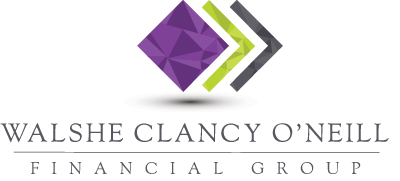- September 17, 2024
- Posted by: Walshe Clancy O'Neill Financial Group
- Category: Taxation

New deductions and employer obligations
Employers need to check that payroll systems reflect recent legislative changes, and the ATO is highlighting deduction opportunities available to some small businesses. Here’s your roundup of the latest tax news.
Updated employer obligations
The ATO is reminding employers to stay on top of legislative changes affecting payroll systems.
The Super Guarantee rate increased on 1 July 2024 to 11.5 per cent of ordinary times earnings, so all payments (starting with those for the July to September quarter) to super accounts for eligible workers must reflect the new rate.i
Individual income tax rate thresholds and tax tables changed also changed on 1 July 2024 so you may need to check calculations for your Pay As You Go Withholding obligations.
Claims for energy expenses
Many small business are eligible for a bonus 20 per cent tax deduction for new assets (or improvements to existing assets), that support more efficient energy usage.
The Small Business Energy Incentive applies to eligible assets first used or installed ready for use between 1 July 2023 and 30 June 2024.ii
Eligible expenditure for external training courses for employees incurred between 29 March 2022 and 30 June 2024 could also qualify for a 20 per cent bonus tax deduction from the Small Business Skills and Training Boost.iii
Pay less capital gains tax (CGT)
While a business can reduce capital gains made during a tax year by offsetting them with capital losses from the same or previous income years, not all capital losses are eligible.iv
Capital losses carried forward from previous years need to be used first, with losses from collectables (such as artwork and antiques) only permitted to be offset against capital gains from collectables.
Losses from personal use assets (such as boats or furniture), CGT exempt assets (such as cars and motorcycles), paying personal services income to yourself through an entity you set up, and leases producing income (such as commercial rental property), are ineligible as offsets.
Fuel tax credit rates change
Before claiming fuel tax credits in your next Business Activity Statement (BAS), check you are using the latest rates as they have changed twice in the new financial year.v
On 1 July 2024, the rate for heavy vehicles travelling on public roads changed due to an increase in the road user charge, with the rate altering again on 5 August 2024 due to a change in fuel excise indexation.
Different rates apply based on when you acquired fuel for your business’ use, so ensure you use the correct rate. If you are unsure, try the ATO’s online Fuel Tax Credit Calculator to work out the amount to report in your BAS.
Records essential for rental expense claims
Rental property investors without correct documentation to substantiate their expense deductions may find their claims declared invalid.vi
The ATO is warning investors they need all receipts, invoices and bank statements plus details of how deductions were calculated and apportioned for a valid claim.
Lodging a ‘nil’ BAS
While taxpayers registered for GST automatically receive a Business Activity Statement and are required to lodge and pay in full by the due date, businesses with nothing to report are still required to lodge.
If you have paused your business, you are required to lodge a ‘nil’ BAS by the due date either online or via the ATO’s automated phone service.vii
i How much super to pay | Australian Taxation Office (ato.gov.au)
ii Small business energy incentive | Australian Taxation Office (ato.gov.au)
iii Small business skills and training boost | Australian Taxation Office (ato.gov.au)
iv Pay less capital gains tax (CGT) | Australian Taxation Office (ato.gov.au)
v From 1 July 2024 to 30 June 2025 | Australian Taxation Office (ato.gov.au)
vii Cancelling your GST registration | Australian Taxation Office (ato.gov.au)
